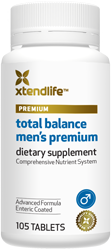What Is Impotence Exactly?
What is impotence? The answer to this question is the same as the same as the answer to “What is erectile dysfunction?”
Impotence, which is also known as erectile dysfunction (ED), is the inability to achieve or sustain an erection firm enough for sexual intercourse.
The definition of impotence includes the total inability to get an erection, a tendency to sustain an erection for only a brief period of time and the inability to consistently achieve an erection.
This condition is fairly common: according to the National Institutes of Health, as many as 30 million men in the United States are affected by ED and the likelihood of this condition increases with age.
About one in 25 men in their 50s suffer from impotence in some form, and by the time they hit their 60s this number jumps to almost 17 percent—about one in six. By age 75, nearly half of men are affected. But the condition can affect men at any age.
Since the definition of impotence involves the inability to achieve or sustain an erection, treatments for impotence involve helping men regain their sexual function.
Several types of drugs are prescribed for erectile dysfunction, including oral medications like Viagra and Cialis.
Other drugs are injected into the penis and still others are inserted directly into the urethra. All of these drugs are used before sexual activity to allow men to achieve and sustain an erection.
Natural remedies can also help men suffering from impotence. These drug-free treatments include lifestyle changes, such as reducing alcohol consumption, quitting smoking and losing weight.
Other natural treatments include psychotherapy, herbs (ranging from those proven safe and beneficial to those that pose serious risks) and mechanical devices that cause the penis to fill with blood.
A question that may be just as important as: What is impotence? is “What causes impotence?” The most common cause for impotence is damage to nerves, muscles, arteries and other tissues, often the result of diseases such as diabetes, heart disease and multiple sclerosis.
Many of the risk factors for these diseases, such as being overweight or smoking, can also cause impotence on their own. In addition, injury from surgery, psychological factors and hormonal problems can contribute to this condition.
If you’re asking “What is impotence?” be sure to ask yourself if your lifestyle puts you at risk for this condition. While impotence is common, it is also preventable and treatable—it doesn’t have to be an unavoidable part of aging.
more on our Impotence Guide home page
Featured Men's Health Supplement

Check out Total Balance Men's Premium today!
Search Our Site
| advanced |
Popular Articles
Alcohol and ED
What causes impotence?
Best Natural Treatments
Non-Drug Options
Vitamins that can help
Foods that can cause ED
Erectile Dysfunction Age


